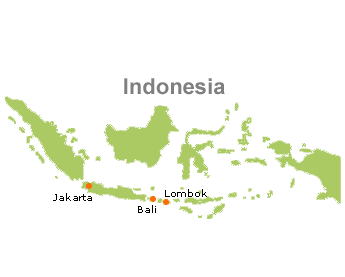Logging plans will destroy endangered apes in Sumatra
 Jakarta - A massive logging plan by one of the world's largest paper companies is likely destroy the Indonesian forest home of Sumatran orang-utans that are part of the only successful reintroduction programme for the great apes, activists said Tuesday.
Jakarta - A massive logging plan by one of the world's largest paper companies is likely destroy the Indonesian forest home of Sumatran orang-utans that are part of the only successful reintroduction programme for the great apes, activists said Tuesday.
A coalition of five conservationist groups said a joint-venture of Asia Pacific Pulp & Paper (APP) and Sinar Mas Group had received a license to clear the largest portion of natural forest remaining outside the Bukit Tigapuluh National Park in Jambi province on Sumatra.
The area is home to about 100 great apes that are part of the only successful reintroduction programme for Sumatran orang-utans, the sub-species most at risk of extinction, the groups said in a statement.
"It took scientists decades to discover how to successfully reintroduce critically endangered orang-utans from captivity into the wild. It could take APP just months to destroy an important part of their new habitat," said Peter Pratje of the Frankfurt Zoological Society, one of the groups.
"These lowland forests are excellent essential habitat for orang-utans, which is why we got government permission to release them here beginning in 2002. The apes are thriving now, breeding and establishing new family groups," he said.
In addition the area is also home to and estimated 100 of the least 400 critically endangered Sumatran tigers left in the wild, and around 40-60 endangered Sumatran elephants, the groups said.
"APP's plan is devastating and it will almost certainly lead to more fatalities since tigers and people will be forced into closer contact with each other as the tigers' forest disappears," Dally Priatna of the Zoological Society of London said.
At least nine people have been killed by tigers on Sumatra this year as the beasts struggle to survive while forests continue to shrink. In retaliation, villagers have killed four tigers.
The area is part of one of the most endangered forests on Sumatra, an island already suffering from what is possibly the fastest deforestation rate in the world, according to the activists, which also include the Sumatran Tiger Conservation and Protection Foundation and the World Wide Fund for Nature-Indonesia.
Almost half of Sumatra's natural forest, or around 12 million hectares, had been cleared between 1985 and 2007, they said.
"The local extinction of Sumatran elephants in the Bukit Tigapuluh area is a real possibility if APP isn't stopped," said M Yunus of the Sumatran Tiger Conservation and Protection Foundation.
The Indonesian ministries of forestry, environment, public works and interior, as well as the governors of all 10 provinces on Sumatra, last year committed to protect the areas of the island with "high conservation values," and the commitment was celebrated publicly at the IUCN World Conservation Congress in Barcelona, Spain, in October 2008, the groups recalled. (dpa)